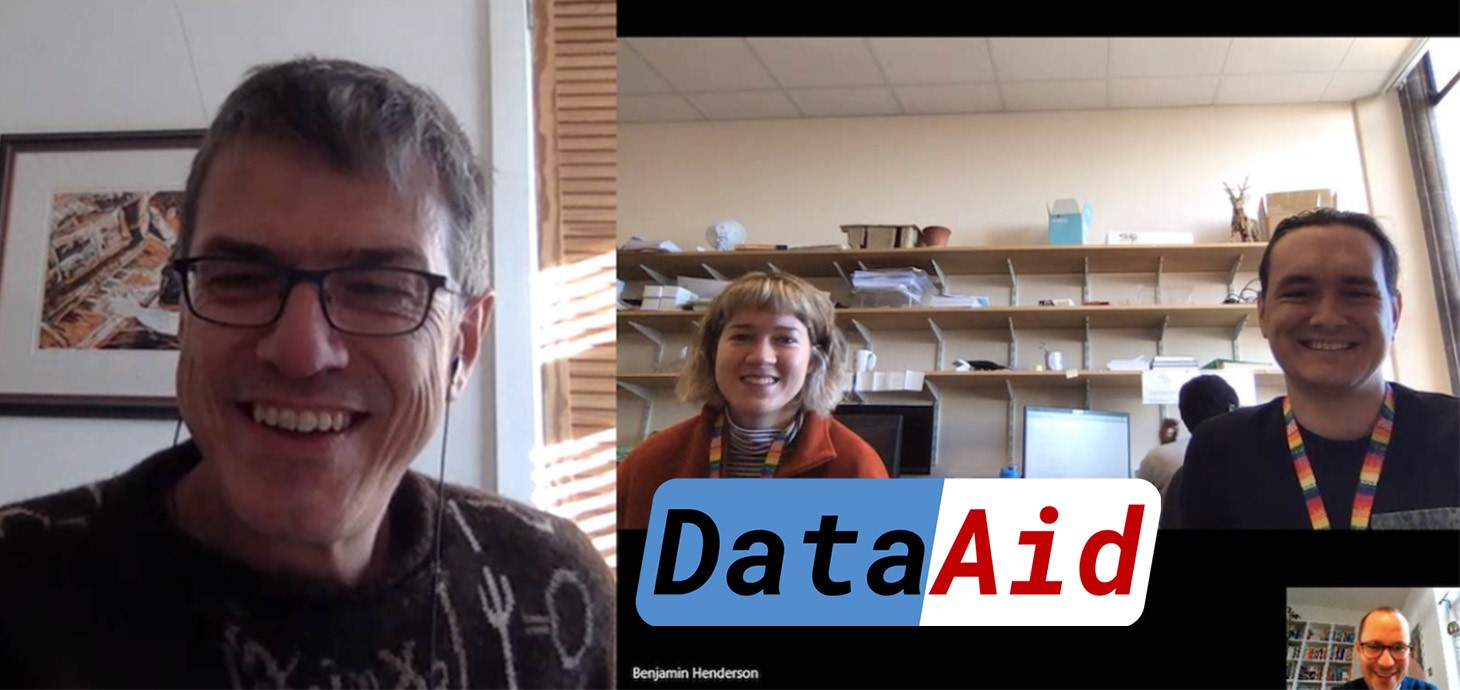
Data Aid organisers' virtual team meeting: their event involved working with charities to solve data problems
The first event of the DataAid programme saw 25 PhD students, including 9 from Swansea University, work together with three UK charities to solve real-world data problems. The charities involved were The Fairtrade Foundation, The Diana Award and Chance to Shine.
The event was an opportunity for charities to gain new insight and understanding in the data they hold.
The students came from two Centres for Doctoral Training (CDT) and five universities based in Wales and the South West.
The event was led and organised by two PhD students from Bristol University who were inspired to use the skills they had gathered in their careers to help non-profit charities. This was their first experience in organising an event of this scale and involved coordinating the legal departments of all five universities with the charity partners, arranging secure data transfer and storage, and advertising, planning and recruiting volunteers for the event.
Professor Simon Hands of Swansea University, representing the CDTs, said:
“We have run many specialised training events across the five universities: DataAid stands out for being student-led, and driven by a keen sense of social responsibility during difficult times. We are very proud of what our students’ energy and expertise have achieved.”
The event was supported by The Giving Department, a consultancy who work in collaboration with charities, industry partners and now academics to connect expertise across domains to effect social change. The event would not have been possible without the help of Supercomputing Wales, who set up the remote server for secure data storage and provided research software engineers at the event to assist students.
During the event, teams of volunteer analysts worked on a series of questions and challenges posed by the charity partners and presented their findings at a wrap-up session for all event participants.
The goal of the event was to enable skill sharing amongst cohorts of the two CDTs involved and allow the students to improve their communication, leadership and technical skills. The event provided an opportunity to learn and develop data science skills from real-world data problems whilst providing some respite from the isolation of lockdown.
Students said that their self-esteem and confidence was boosted as a result and that they found it rewarding helping charities with their data questions.
Tonicha Crook from AIMLAC CDT, a Swansea University student in computer science, said:
“It was amazing being able to apply what we have learned in university and being able to help charities! Not only did we improve our current skills, it also developed our leadership, organisation and communication skills.”
Insights from the event will help charities to improve their data cleaning and collection, providing quantitative evidence to support their work.
Melda Kahraman from Chance to Shine said:
“As Chance to Shine, we are glad to be part of the DataAid event. We have big and rich data but we do not have enough expertise nor the time to examine our data in detail. The data champions who worked on our data have provided us with advanced analyses with different techniques e.g. looking at correlations between different variables such as gender, age, locations of projects etc.
At the end of this event, we received very valuable analyses and findings which will support some of our narratives in funding applications or our communication to wider audiences. Some of the analyses also made us aware of some gaps that we need to pay attention to while monitoring our projects. Overall, we had a very positive experience and rewarding findings.”
